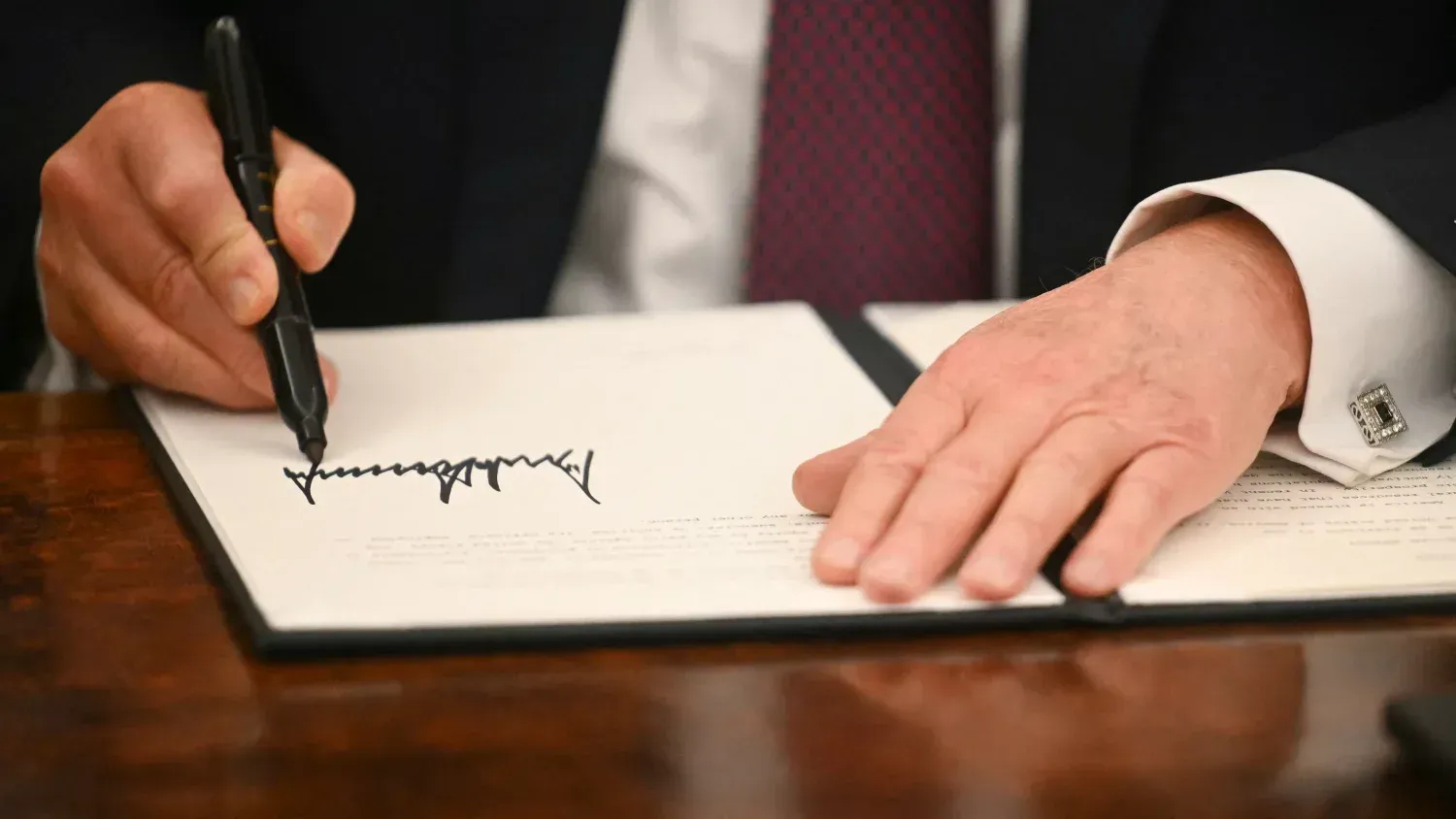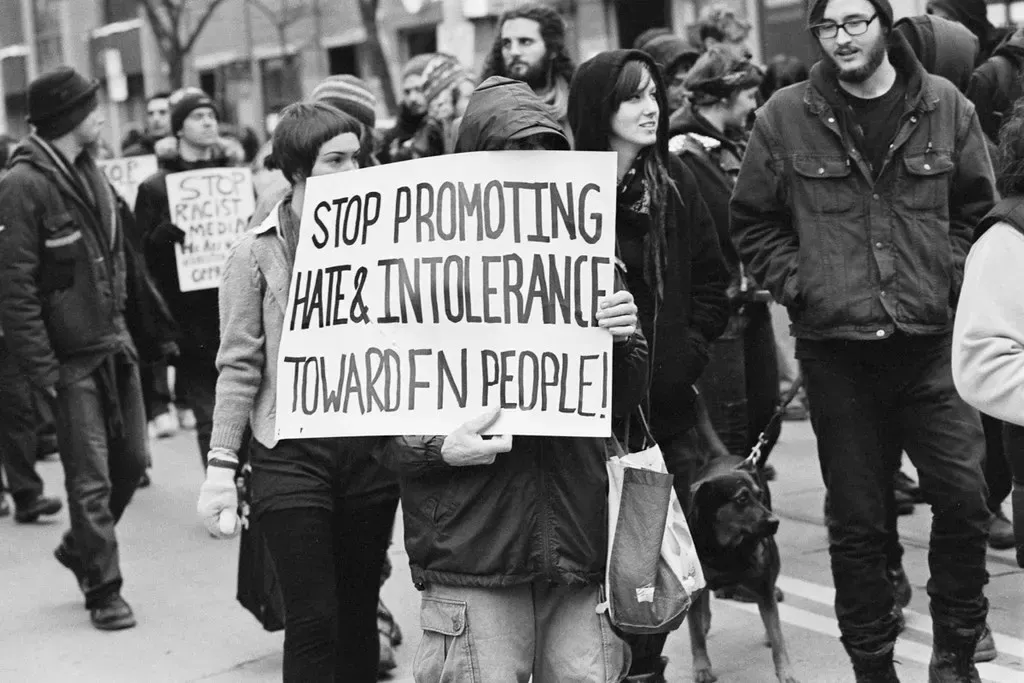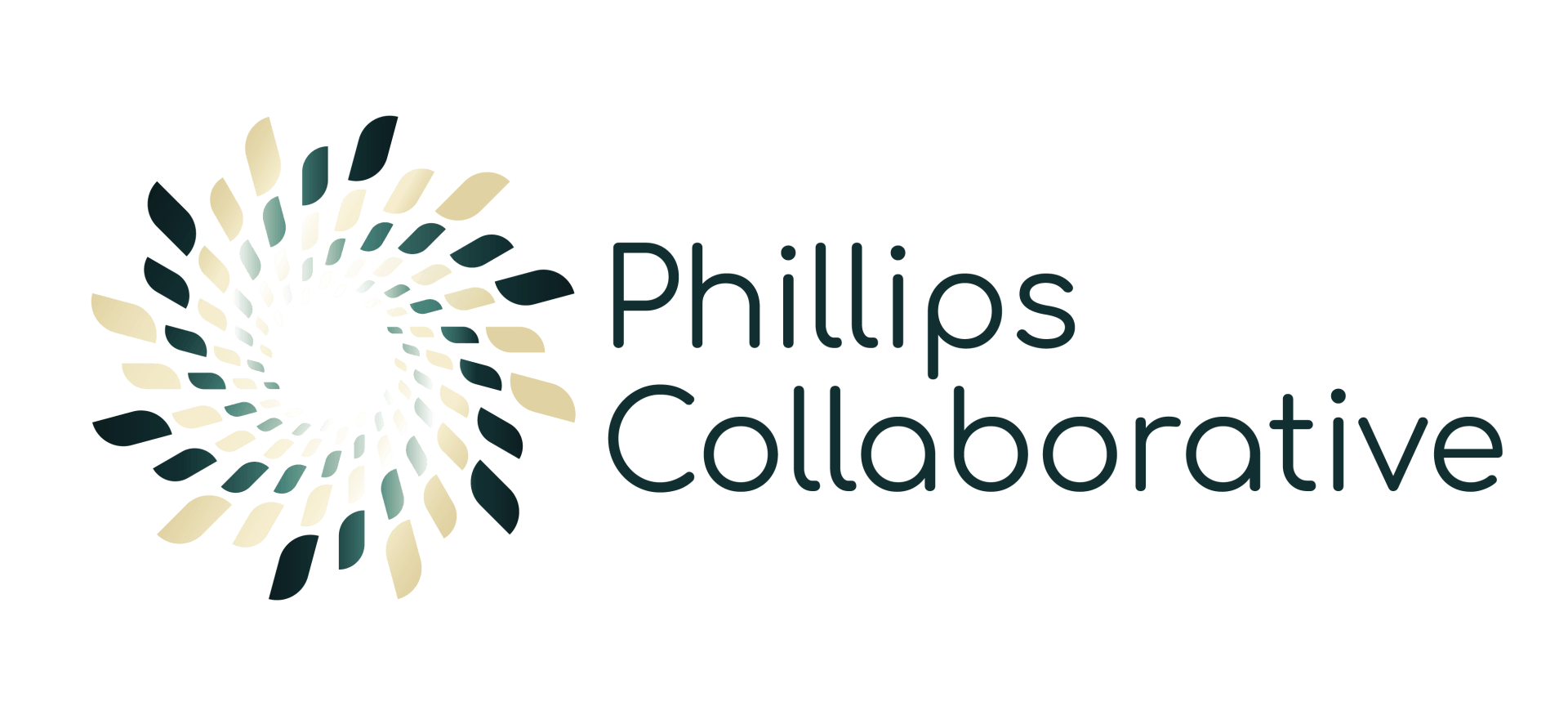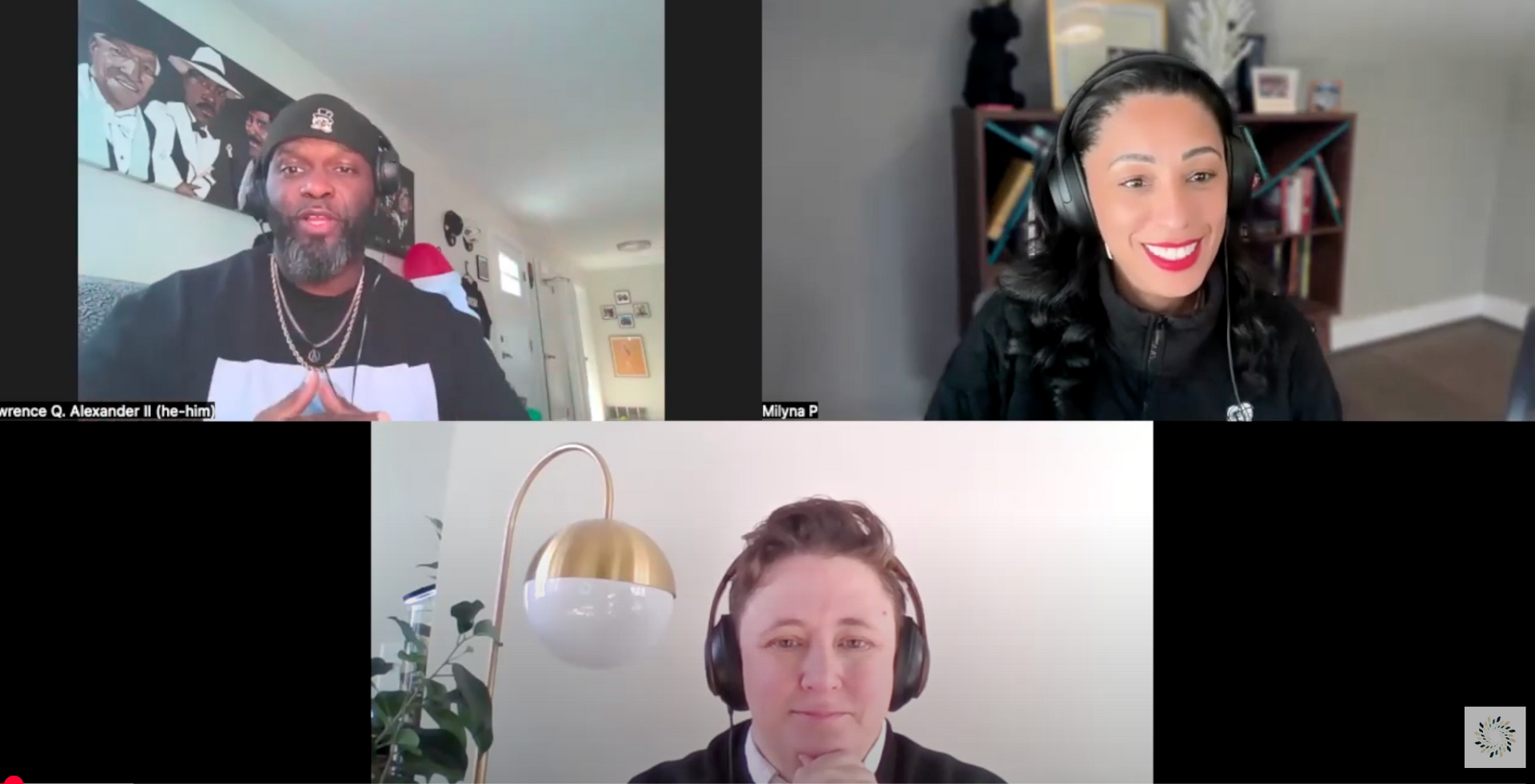The “Problem” of Black Women in Independent Schools: A Cycle of Abuse
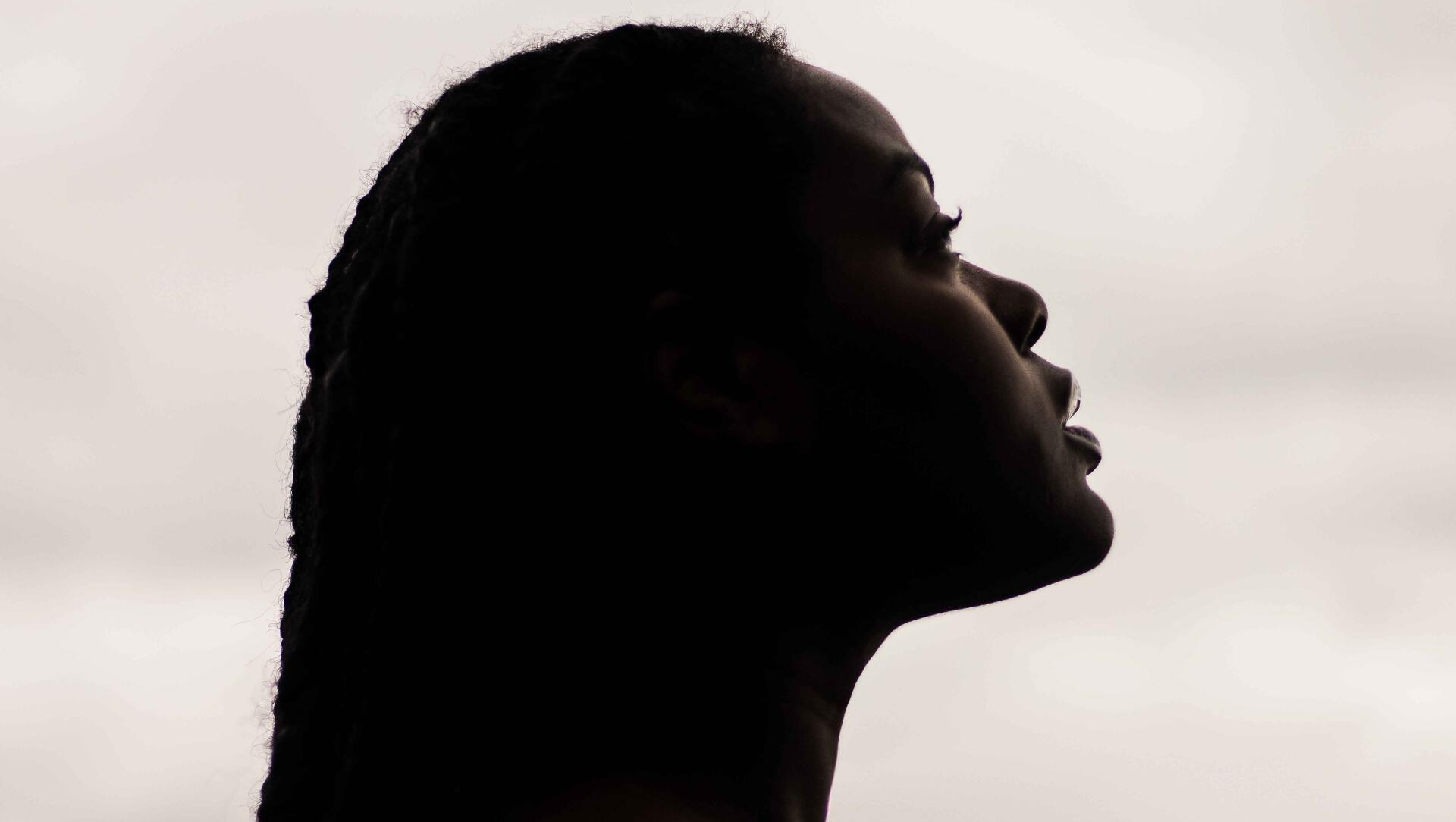
“You lie!” That’s how I was publicly greeted one morning by my department chair. She yelled at me as our entire division was ushered into the gymnasium for an assembly. As an educator who has spent more than a decade teaching in independent schools all over the country, I assumed that these types of microaggressions were isolated. How wrong I was. It wasn’t until years later and after an avalanche of hostile treatment and abuse did I realize that because of my positionality as a Black woman, my trajectory within independent schools was as predictable as it was brutal.
My onboarding process within independent schools was euphoric– I enjoyed getting to know my new colleagues, learning about the community, and best of all meeting the students. I was energized about the work I would accomplish in collaboration with a new cohort of educators. The institutions were proud of themselves for their “diverse” hire, and I was often paraded around campus like a shiny new penny by school leaders. In my experience, my honeymoon phase often waned when I began to be more vocal about the changes that needed to be made to policies and systems that created barriers for BIPOC faculty success and student learning.
Being my authentic self and an unapologetic advocate for marginalized communities made me a target within independent schools. The repeated injury and harassment has had a real impact and long standing implications on my well being and career. One year, after a semester of withstanding sexual harassment from a colleague, I reported the behavior to my head of school and human resources. I reported the behavior not only for myself but for the safety of other women, particularly Black women on campus.
Why do Black women continue to leave independent schools? According to the SHRM 2021 report on work culture, toxic cultures cost U.S. companies almost $50 billion per year, and toxic culture was the single biggest predictor of attrition during the first six months of the Great Resignation. There are systems of oppression and people who eternalize this oppression entrenched in independent schools and without accountability, systems change, and reparations it’s impossible to extract these schools from white supremacy. At times, perpetrators can be other BIPOC colleagues who are steeped in a scarcity mindset. And while they attempt to become proximate to power they reduce themselves to upholding white supremacy at all costs.
I never imagined that I would receive the type of fierce retaliation from my supervisors, most of whom were white women. After reporting the harassment I was told in my performance review that I wasn’t a “team player”, I was perceived as “difficult” for requesting FMLA to care for my child. I was gaslit by my head of school time and again when I wouldn’t agree to co-teach with the man who sexually harassed me. I was asked, “Hasn’t enough time passed?”, some of my colleagues were growing frustrated with me that I wouldn’t just “move on”. My mental and physical health suffered tremendously under the intense scrutiny.
The last straw was a year later when my division head asked me to write a job description for a position I had been advocating be created — a department coordinator role that would focus on curriculum, pedagogy and teach a full load. I, along with the person who harassed me, were the only people who interviewed for the position. I was the more qualified candidate and had past experience, professional development and education to prove it. At this point, he hadn’t attended any professional development outside of what the school mandated. The old adage, “we [Black women] have to be twice as good to get half as far” has always held true for me in predominantly white spaces, but was especially excruciating in this instance. He was awarded the role.
I wish that this was the end of the cycle but heads of school have private conversations with each other, they share stories and in the process can create biases against people in job searches — I was blackballed. The retaliation made it extremely difficult for me to find employment.
Tragically, my story is not as unique as you might think, this cycle of Black women being traumatized and pushed out of independent schools and nonprofits more broadly has been studied with astounding predictability (see illustration below). If independent schools are going to center equity, belonging, justice and retain their faculty of color, how may we begin to lead ourselves out of these cultures and evict toxic employees, without further traumatizing Black women in the process? How may leaders develop safeguards and systems that disrupt this cycle of workplace abuse for Black women?ad.
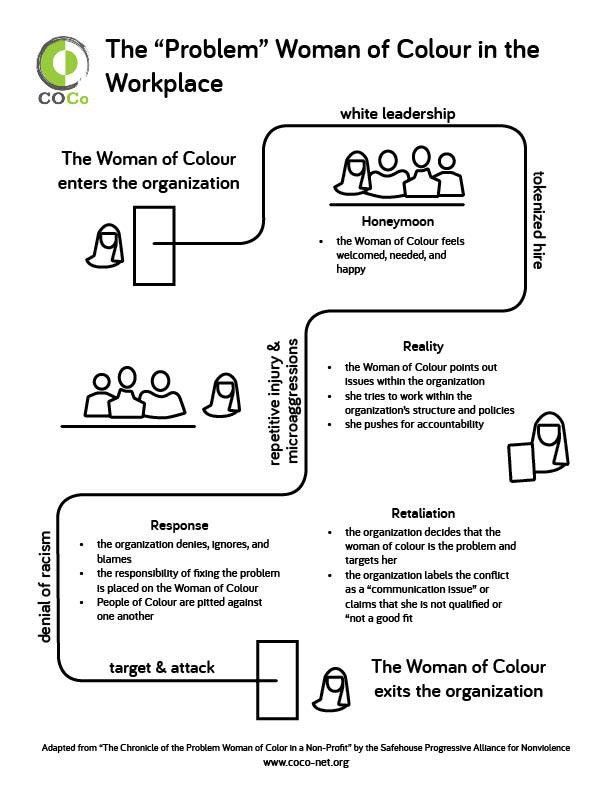
My narrative and that of so many others brings me to the intersection of the work I do today. I listen to stories like my own to hear for the people, systems and practices that failed. I ask how I may give agency to those in power to create capacity, urgency and imagine policies rooted in our mutuality? How might leaders resist the urge to make individualistic choices that illustrate how disassociated they may feel from the plight of others? The culture of “niceness” and the pressure to avoid confrontation within independent schools may cause some to choose the path of least resistance and maintain the status quo. I try to disrupt the cyclical culture of victim blaming and recreate spaces where BIPOC employees feel physically and psychologically safe to bring their authentic selves into our PWI’s. This is what we deserve, should fiercly demand or we will continue to leave.
